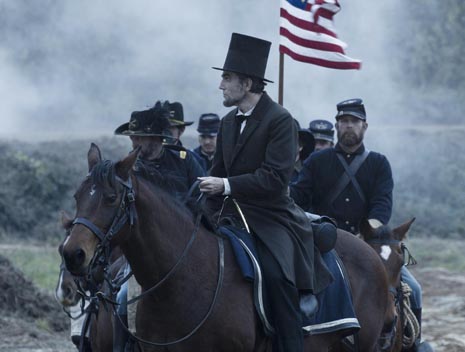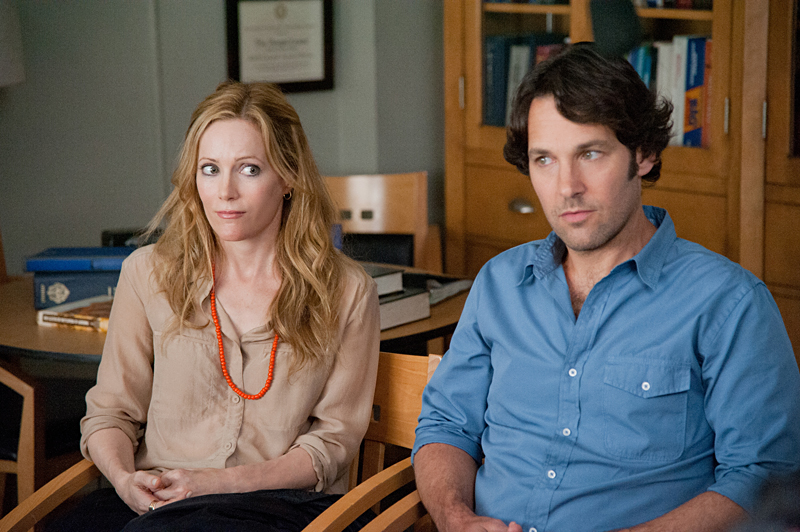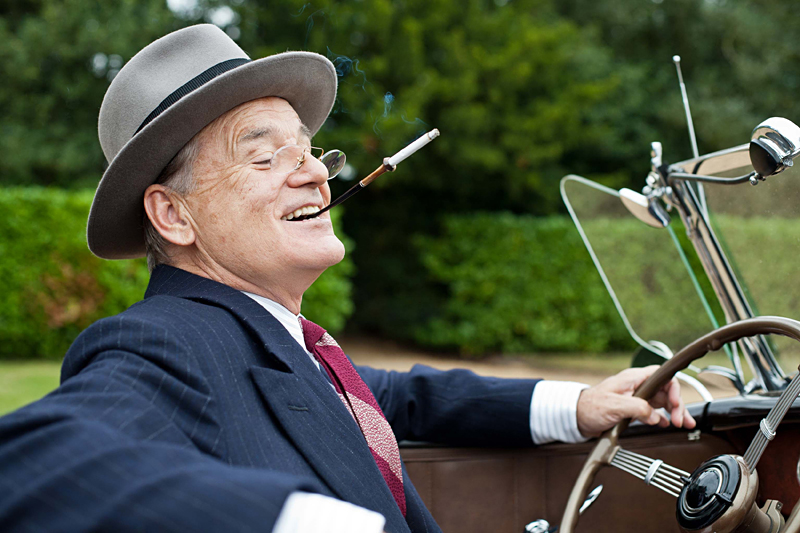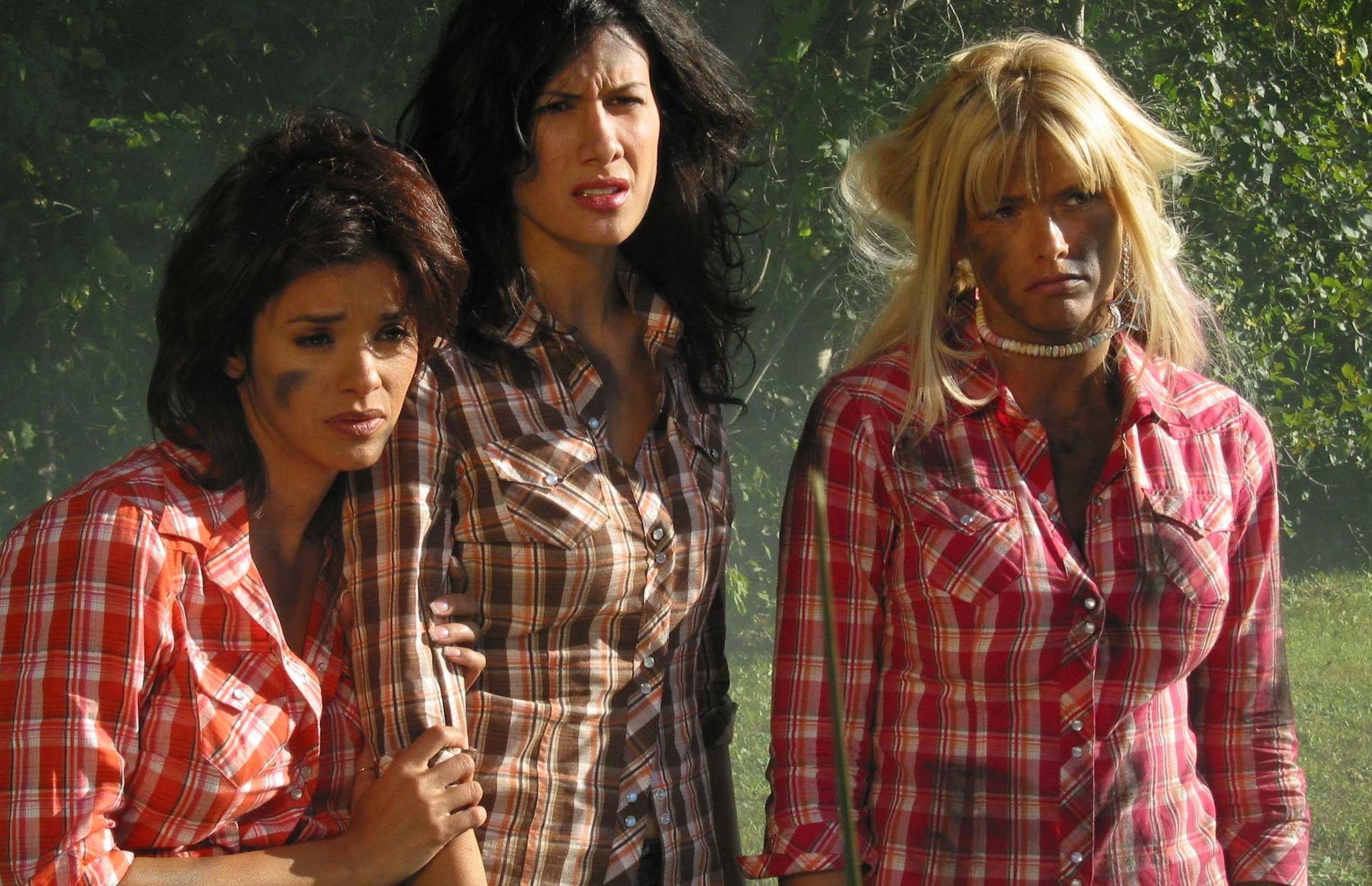The first few minutes of Lincoln (review) play out like a parody of the expectations of Steven Spielberg’s detractors. The Great Emancipator rests like a humble Solomon upon a hard wooden chair, surrounded by freely mixing black and white soldiers of that great war of his. One black soldier dares to speak of the injustice of being paid less than the white ones, and then, to demonstrate their understanding of the momentousness of their cause, three of the battle-weary Union boys of 1865 recite back the words of the Gettysburg Address as if it’s already something their teachers demand they memorize.
Warmly, Lincoln dismisses the boys: He’s a likable, busy fellow, the kind of president you’d want to have a beer with. But then he ponders the words they’ve parroted back at him, and as his face hardens toward the profound determination that will power the rest of the film and his life, he’s all awash in the grainy high-beams favored by director of photography Janusz Kaminski, he’s heralded by a John Williams score thick and sappy enough to spread on flapjacks, and he’s framed by Spielberg like he’s something fantastic and unknowable that we can’t believe we’re glimpsing, yet another of the director’s impossible creatures, something whipped up with Macs or a rogue strand of the 16th president’s DNA.
It’s just the kind of sentimental bombast that critics routinely assail from Hollywood’s most profitable director. And it’s just the kind of thing that will stiffen the spine and open the tear ducts of millions of viewers, possibly for generations to come. Amistad notwithstanding, a new Spielberg history film is never just a movie: It’s future homework, a multimedia addition to the Smithsonian, a new official imaginative record. Even people who haven’t actually seen Saving Private Ryan know the gut-scraping crack-up of its D-Day, and it might not be possible for mediated young folks to dream of Auschwitz in color. The staying power of these films—due as much to their artistic power as for their Time-cover, 60 Minutes marketing—makes moments like Lincoln’s bathetic opening all the more sour for Spielberg’s critics. It’s easy to carp, “Is it now orthodox American belief that Lincoln sat around like Robin Williams in Hook thinking, ‘If those kids believe in me, I just might, too’?”
Like Schindler’s List and Saving Private Ryan, Lincoln is for the most part served straight-up, with little whimsy or pandering, and with the director’s lavish gifts—for bodies in motion, for tension and release, for clearly communicating multiple story beats in a single, un-fussy shot—triumphing over history-lesson stiffness. Lincoln even showcases gifts Spielberg has too rarely used: Turns out, he’s awfully good with adults in rooms having long conversations, which he hasn’t much shown since that priceless round of scar-sharing in Jaws. The film is as steeped in suspense as many of his adventure movies, but here it’s never the threat of immediate violence working your nerves. And the economy and clarity with which Spielberg establishes the competing interests in the film’s protracted political wrangling has no precedent in his filmography: Recall the yards of drab exposition that wrapped up Minority Report, or the rushed inscrutability of Indiana Jones and the Kingdom of the Shitty Whatzit. Lincoln is the work of a different director, one truly fascinated by why his subjects do what they do, one who invests each moment with the artistry he has often reserved for setpieces.
Despite that scrupulousness, when staring into a subject this grand he sometimes blinks. This is not new. He had the grown-up Private Ryan bawling at Normandy, asking to be assured that his life was worth the sacrifice of the men who died for it. He had reserved Oskar Schindler working up into a fit over his failure to have been even more heroic. In perhaps his most ridiculed scene, save The Lost World’s raptor-vanquishing gymnastics, he had Mossad agent Avner of Munich Hulking out as he pumps away at his wife, intercut with a garishly brutal re-enactment of the murder of the 1972 Israeli weight-lifting team, demonstrating that a normal sex and home life should be impossible considering this world’s preponderance of terror.
In these moments, as in the opening of Lincoln, the great care of Spielberg the artist seems overruled by the anxieties of Spielberg the man, the good-hearted liberal tug by that American guilt that we live too insulated from the world’s true horrors; the boomer who wishes his generation had done a better job stopping those horrors; the celebrity considered childish for too often having mined those horrors for popular fantasies. In their strained and urgent pushiness they resemble nothing so much as Richard Dreyfuss in Close Encounters insisting that his mashed potatoes mean something—he just can’t show us quite what.
The life of Lincoln ain’t mashed potatoes, so you might find that opening unwelcome. Dismaying, even—evidence that even after all these years this most accomplished of filmmakers doesn’t trust that we’ll be moved by mere storytelling. More charitably, they can be said to evince a courageousness not often attributed to Spielberg. Here is an artist capable of fully immersing us in the epochal moments that shaped us as a people, yet also eager to lay bare his fear of us as a people not measuring up to those moments. Worrying over this, he lunges at complex—even existential—anxieties impossible for him to storyboard.
Even his homely, radiant Lincoln has his moment of doubt. Hearing his own address coming as something like prayer from the mouths of soldiers who soon might die, he is stricken: How could a mortal ever live up to those words and their promise?
Like Spielberg, this Lincoln blinks. And then, like Spielberg, he sucks it up and gets on with his mighty business.








